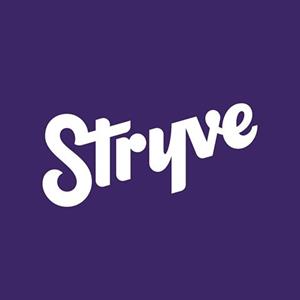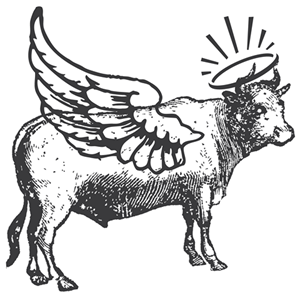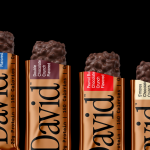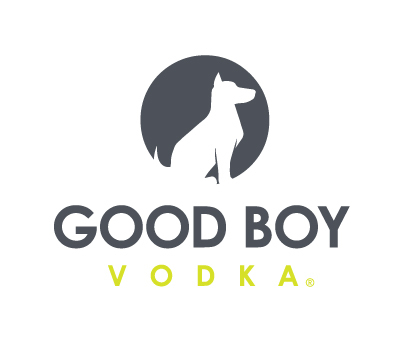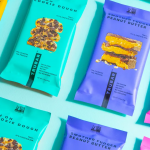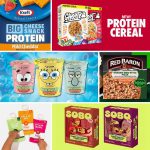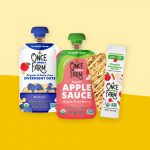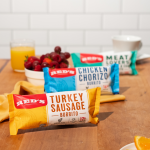Stormberg Foods Maneuvers To Lead U.S. Biltong Category
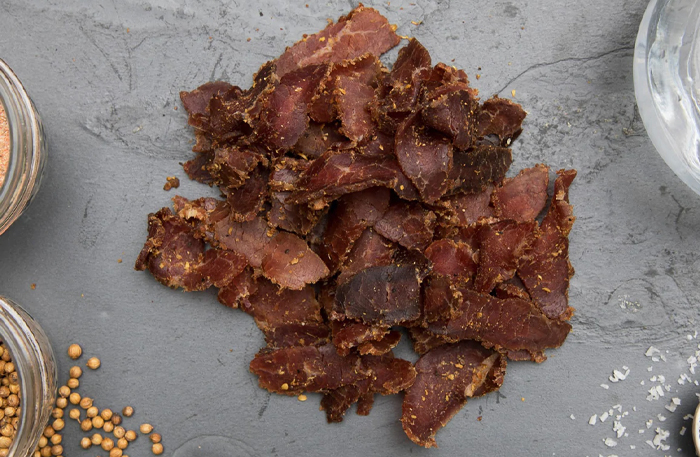
South African biltong co-packer Stormberg Foods has acquired U.S.-based air-dried beef snack company Ayoba Foods for an undisclosed amount, marking its third acquisition in a little over a year. The acquisitions position the South African company to compete directly with Stryve, the country’s most visible biltong brand and manufacturer, which has been increasing its market share since it went public in 2021.
In a LinkedIn post last week, Ayoba co-founder Wian van Blommestein called the news “bittersweet” but also voiced confidence that the brand he helped build was in capable hands.
Born in South Africa, van Blommestein started making biltong as a way to connect with his national heritage and to spend time with his father and brother when the family moved to the U.S. He launched Ayoba Foods in 2015 and ran the company together with his brother and co-founder Emile up until its sale last week.
Having generated “a ton of momentum and growth opportunities” after launching in Fresh Market and three Whole Foods regions, van Blommestein told NOSH, the opportunity to vertically integrate the brand within its manufacturing partner’s portfolio made sense as it sought more funding to keep up with demand.
“We definitely tried to raise more capital and we had a few conversations going but nothing strong enough to bring money or capital in [with] the time crunch that we needed to support these new launches and this new growth,” he said.
Acquiring Ayoba allowed Stormberg, South Africa’s largest meat snack producer, to continue to build out its branded portfolio in the U.S. It also puts its manufacturing operation in direct competition with Stryve, which has sought to position itself as the leading maker of biltong as well as a company that sells branded products.

Gary Moorcraft, who purchased Stormberg in 2007, expanded into the U.S. in April 2019 and left his son, Paul Moorcraft, to operate the South African operation that maintains a controlling interest in the U.S. side of the business. The co-packer has an air-dried meat production facility in Goldsboro, North Carolina, through which it has incrementally positioned itself as a major player in the category via a number of co-packing and private label partnerships as well as the quiet acquisition of several brands.
Moorcraft said the impetus for Stormberg to grow beyond its co-packing roots came when the company lost its biggest client, Kalahari Snacks, after it was outbid by Stryve to acquire the brand in 2021.
“I said to myself – and to our board – we cannot carry on like this,” Moorcraft said.
An opportunity took shape during the pandemic for Stormberg to acquire two biltong brands it co-manufactured – Brooklyn Biltong and Made By True – which had built their businesses on revenue growth over profitability, Moorcraft said. As these smaller brands faced cash flow issues over the course of the 2021 summer, Stormberg was well-positioned to acquire them and take over operations.
With Ayoba positioned as its high-end natural brand, Stormberg now has a diversified portfolio with Brooklyn Biltong as its mid-range grocery item and Made By True as its value product.

“The only way we can take on Stryve is to be vertically integrated,” Moorcraft said. “It’s not that difficult because we have the logistics and we have the production.”
The timing may also be in Stormberg’s favor. Stryve rose to the center of the niche biltong segment when it went public in 2021 on the back of special purpose acquisition company (SPAC) Andina Acquisition Corp III; at the time, Stryve announced it was expecting its 2022 net revenue to hit $92 million. But conditions have changed. Currently, Stryve’s full year revenue guidance is about one-third of that target at $35 million to $37 million, according to the company’s Q2 earnings call on August 15.
The company has experienced disappointing results in the first half of 2022. Gross profit margin was down -$3.3 million in the first half of the year compared to a positive profit of $6.3 in the same period of 2021. The company brought on CPG-industry veteran Christopher Boever as CEO to help right the ship.
Stryve CFO Alex Hawkins attributed these losses in part to a “substantial, limited-time promotional program that took place in Q2” that put its products in big retailers like Costco at a heavy discount.
“It got us national exposure to a very attractive shopper audience and consumer base,” he said in the earnings call. “This is a definite inflection point for the company with a lot of learnings, albeit some expensive ones, but a lot of good learnings, not just with the shopper and consumer, but also internally on how we can be as efficient [and] effective to manufacture the lowest cost of goods possible.”
Stormberg’s strategy aims to capitalize on biltong’s relatively small visibility by focusing on channel positioning first and distribution later.
“I think the market is there right now,” he said. “Either they (Stryve) go out of business or they restructure their pricing but, to work on a negative gross margin, I’ve never seen that in my life before.”
Compared to the broader meat jerky snack space, biltong represents a relatively small segment with higher overhead, a shorter shelf life and increased ingredient costs. This puts biltong at a higher price point than traditional jerky brands.
As much as Stormberg is competing directly with Stryve for market share, it continues to do co-packing for both Kalahari and other Stryve-owned brands, playing into its strategy of prioritizing production over brand-building.
“If we just remain disciplined with our marketing structure, our channel strategy, we get the right representation and we keep on knocking on doors,” Moorcraft said. “We should be able to grow.”


